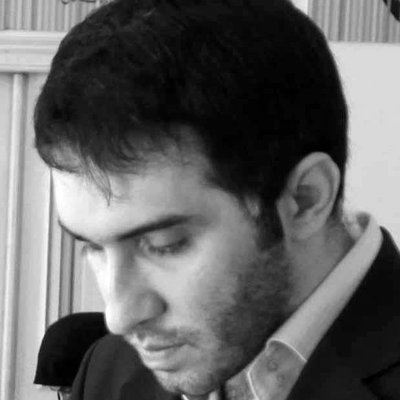
Last Update
June 15, 2020
Organisation
Unknown
Gender
Male
Ethnic Group
Unknown
Religoius Group
Shia
Province
Tehran
Occupation
Journalist
Sentence
Unknown
Status
Released
Institution investigating
IRGC Intelligence
Charges
Dissemination of False Information
Disturbing public opinion
Ali Ghazali Released
The charges against him and the date of his court trial are unknown. Ghazali was arrested and taken to Evin Prison on November 29th, 2014 after Kamel Taghavinejad, the CEO of Sepah Bank, filed a complaint against him, before being released on December 8th, after serving 9 days in detention.
Taghavinejad is one of many banking and financial officials thought to have been involved in Iran’s 2011 embezzlement scandal, the largest instance of bank fraud in the country’s history. Forged documents were used to obtain approximately $2.6 billion worth of credit from state and private banks to buy state-owned companies. In the ensuing investigation, evidence presented at court suggested that several senior banking and financial officials under former President Ahmadinejad had helped the embezzlers commit the crime.
News of the scandal provoked a strong reaction from the public and further discredited Ahmadinejad’s government and the regime. The Supreme Leader, Ayatollah Khamenei, demanded that the media stop covering the incident. In September 2011, Mahmoud Reza Khavari, the managing director of Bank Melli, Iran’s largest state-owned bank, fled the country to Canada to avoid prosecution. In May 2014, Amir Mansour Arya, a billionaire and Ahmadinejad supporter, was hanged for his involvement in the embezzlement scheme. Over the past few months, Ali Ghazali had been exposing the secret financial dealings between Taghavinejad and Hamid Pour-Mohammadi Gol-Sefidi, the deputy president of the Iranian Central Bank under Ahmadinejad who has spent time behinds bars for his involvement in the scandal.
Ghazali was also arrested in the spring of 2013 when he published a report on Baztab Emrooz website saying that vote rigging had taken place in the disputed presidential election of 2009. “According to a story by a group of economic activists affiliated to Mashaei [a member of Ahmadinejad’s cabinet and his chief of staff from 2009-2013], Ahmadinejad’s trump card is a tape recording of conversations he had on the morning of June 13 [2009],” Ghazali wrote. “According to the unofficial news, in the conversation, certain officials reported to Ahmadinejad that his real vote count was 16 million but in order to stop speculations of fraud, it was decided to announce that [he had received] 24 million votes. However, Mahmoud Ahmadinejad emphasized that officials should announce his real vote count, which was 16 million, and not an inaccurate one. “
On April 27th, shortly after the report came out, Ghazali was summoned to the prosecutor’s office in Tehran and arrested. Foad Sadeghi, the founder of the Baztab website, was also arrested. According to an informed source who spoke to the International Campaign for Human Rights in Iran, Ghazali’s mother was told “not to have any hopes of seeing your son outside of prison for a few years,” and that Ghazali had been charged with “creating public anxiety through repetition of claims of election fraud in the 2009 election.”
Before the Baztab site was blocked in April 2013, it published numerous reports on the secret financial dealings of government officials. Aside from the embezzlement scandal, the site exposed details of a contract between Iran and China that demonstrated that the Islamic Republic had given China too many financial concessions. It also reported on shady deals between Babak Zanjani, the billionaire who is currently in prison, and Saeed Mortazavi, the former head of the Social Security Organization and general-prosecutor of Tehran, who was recently disbarred.
Prior to their arrests, security forces threatened Ghazali and Sadeghi on a number of occasions. The Baztab office was also searched. Both men were released on June 18th 2013, three days before Hassan Rouhani was elected President. After the Baztab website was blocked, Ghazali used Facebook to post the names of 750 students who had received scholarships from the Ministry of Science but who were unqualified to take the positions. His exposé coincided with the Iranian parliament’s decision to impeach Reza Faraji-Dana, the Minister of Science, Research and Technology under Rouhani, leading to widespread controversy. Several media outlets called for Ghazali to be prosecuted. The Islamic authorities have yet to release information on the new charges against Ghazali or when a trial will take place.